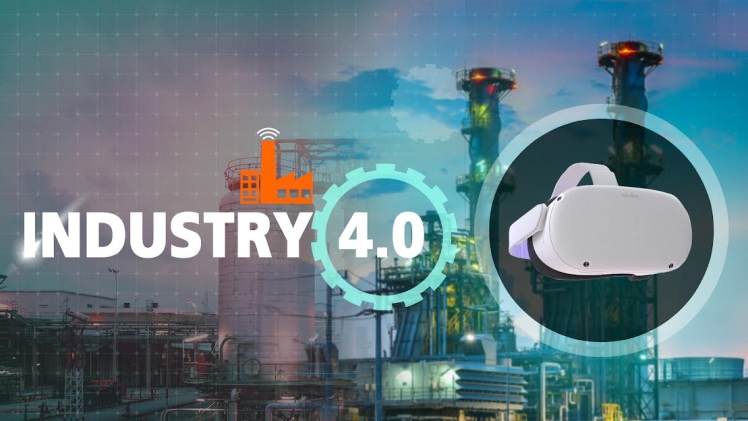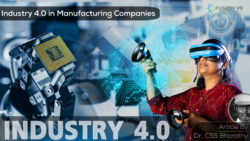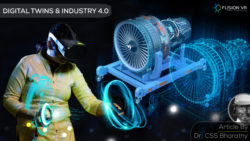One of the important technologies in Industry 4.0 that is leading the transformation of the manufacturing landscape is Virtual Reality or VR as it’s popularly known. Industry 4.0 technologies target at making factories smart and VR is focused on making the workforce even smarter. Their knowledge, skills are enhanced through experiential learning that not only empathetic but extremely effective for delivering the desired results.
Virtual Reality provides an immersive experience that is transforming several processes commonly found in any industry. It changes the way we design processes and machinery, how we train people on those processes and the way we operate and maintain those. These VR supported enhancements give companies the ability to operate efficiently, innovatively and most importantly, profitably. That means companies can expect better returns on their investment.
VR helps in making design more collaborative by involving engineers from various specialties and discipline to test prototypes and improve them with much less time and effort and getting them to the market sooner than before. Being the first to market new product design and features delivers a competitive advantage for all companies. Simulation is another area where VR finds one of its biggest applications. Simulators help operators, technicians and engineers to experience a real virtual plant or shop floor by just donning a VR headset. They are transported to a digitally created highly realistic world to learn, practice and gain competence in skills that were obtained earlier only if you were inside an actual factory.
They learn operating procedures, maintenance practices, safety training and emergency response skills so easily and more effectively. They can make mistakes, learn from them and hone their skills to a level of perfection that has never been obtained before. This training and learning experience is gamified making them want to progress to higher and higher levels. What supervisors and managers get in the end is a highly productive workforce that makes fewer mistakes, manages emergencies effectively, reducing downtime and improving profits. VR can be coupled with real time data from operating plants and machinery to train on more scenario-based exercises. It also enables the creation of digital twins for critical plant machinery that asset and reliability managers find it helpful to monitor and enhance operations efficiency and reduce costs.
Almost every industry is ready to adopt these technologies and make dramatic improvements. Not only Oil & Gas, Aviation, Automotive, Power, Mining, Nuclear, Pharma, Healthcare, Entertainment have use cases to implement and gain improvements. VR helps to clearly a human performance improvement technology that is now within the reach of every industry. The technology is maturing quickly and the cost of implementation has dropped tremendously for easier adoption and implementation. Expert solution providers with rich industry domain experience are available and willing to listen to the challenges companies face and develop unique VR solutions to overcome them. The future is here and it’s no longer difficult to find a Virtual reality company in India to deliver world class service and solutions competitively. Its time CEOs and CTOs explore more about the power of VR and begin its deployment to overcome the competition in the 21st century.
Authored by: Dr. CSS Bharathy
Read From Source: P8t.net



